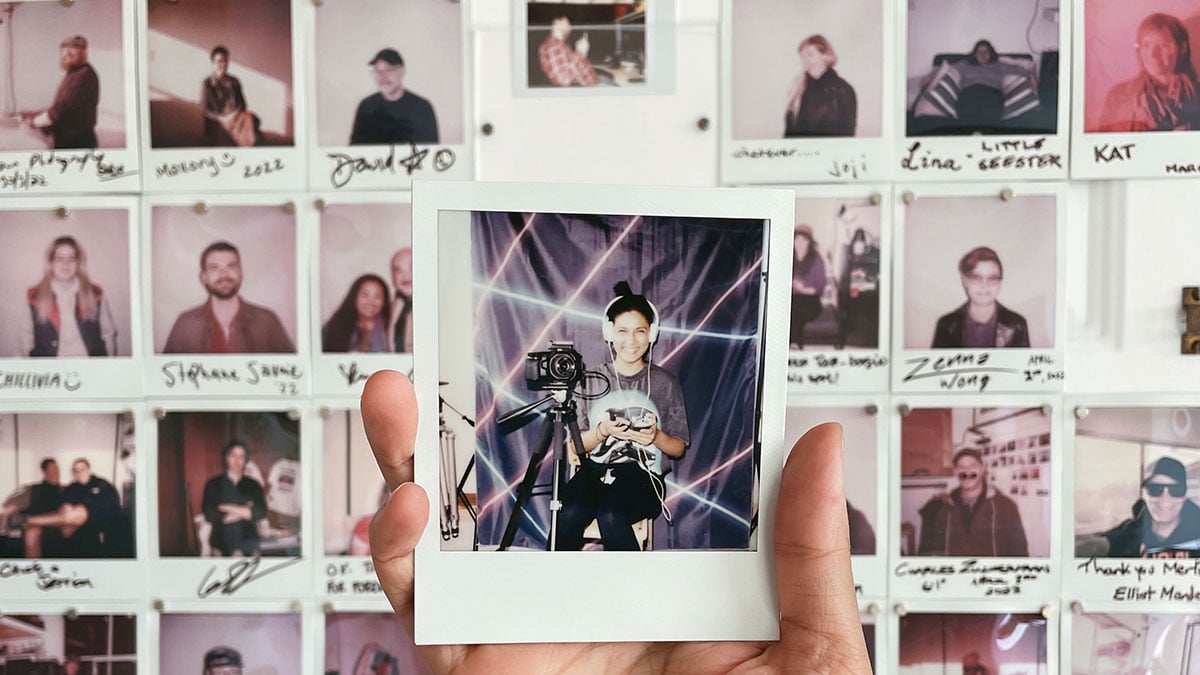The City Centre Motel at the corner of Main Street and Fifth Avenue was a doomed relic, a low-slung, sprawling monument to Vancouver’s 1950s, when land was cheap and the developers’ gold rush wasn’t pushing up towers wherever possible. Last year the motel shut down, acquired by Nicola Wealth Real Estate, manager of $11 billion in assets, with intentions to build something big.
Enter an unusual proposition from the Narrow Group in partnership with Vancouver Mural Festival. Development of the site was at least three years off. In the meantime, why not convert the 18,000-square-foot motel into some 70 artists’ studios renting for $500 to $650 a month? In a pricey city driving out creative people with low incomes, could this experiment serve as a stop gap for dozens, and maybe an example of a more lasting solution?
Artists began taking up residence at the motel in January. Last month, I paid visits to their studios and interviewed others involved. The result, crafted for The Tyee, is the nine-minute documentary at the top of this piece.
The Tyee’s editors posed some questions to me about making the video, so I’ve jotted some thoughts here.
What drew you to the City Centre Motel turned artists' colony?
I've been an artist for as long as I can remember, long before I picked up the camera or decided to wear the journalist's hat. So when I found out about the City Centre Motel and the artists renting the space to create art, I was immediately hooked. Not only was this project about the transformation of a motel into an artist space, but what it means to be an artist in an expensive city and how integral it is for artists to feel supported in a world where art doesn't usually pay the bills (and unpaid internships are the norm). I wanted to know how this place came to be, who the artists were and what some of the obstacles for the stakeholders were.
What was it like entering that world?
Artists are a special species, and creating art is like gambling — there are no guarantees and many rounds of trials and errors, but it is a hopeful world. Securing interviews with the artists I would say took the longest time in the production process. I was working on the artists' schedules and they can be all over the place. But once I was there, it felt like we were creating this piece together. As someone new to the city, the assignment served as a crash course in understanding the arts and culture scene in Vancouver as I spoke with artists and other sources who reflected on their experiences and the history.
Is this a model worth supporting in Vancouver and elsewhere?
That's the thing about innovation, right? It seems impossible and crazy until someone goes out there and changes the norm. We know housing is expensive in this city and in many other parts of the world, so such models offer a window into what is possible. As artists are adaptive and constantly evolving beings, they are not worried about the space being available temporarily. So such a model can be pretty successful for the artist community. We know a problem exists, and people have complained about it for years. The city acknowledges it, but someone decided to experiment and devise a solution. That is what I'm interested in reporting on. The solutions. On what is working and what is done right and what others can learn from it.

“Solution” is not often the word many people associate with journalism. Some people I interviewed asked me, “What do you mean by a solution story?” Solutions journalism is committed to reporting on potential alternatives to widely shared problems or needs. The point is not to spin or risk creating false hope. A good way to do solutions journalism is to go to a small-scale social experiment and report directly on how it’s going by collecting and sharing resulting data, relevant research and what people involved are experiencing.
It’s not advocacy or “brand journalism,” as they call it these days. Doing solutions-focused journalism means critically reporting not only what’s working but what’s not, and what the limitations are. Only then can the citizen make a good decision about whether to support more such experiments. Only by trying to paint a complete picture of the experiment can the piece help the next person who tries it to do it better.
The time is ripe for solutions stories when people generally agree there is a problem and are eager to consider ways forward. Vancouver clearly has a problem with rent affordability and making space for artists. The motel is far from a perfect solution, but seemed a good site to explore what can be done in response.
Why take a video approach to telling this story?
I find it easier to show than tell. In fact, I don’t think words alone or even words with photos would have allowed me to do as well in recreating what I witnessed with my eyes. My aim is to immerse the audience in the story. The camera is the closest they can get to living what I experienced.
Another thing I find so exciting and rewarding about filming documentaries is that there's no script, and people don't know what questions will be asked. So when I ask people questions, I see them make discoveries about themselves and capture their epiphany moments in real time.
What's next for you?
I’ve started my second year at UBC's graduate school of journalism. I want to improve my craft and develop investigative skills to report on complex stories and make films that inform and inspire. I'm aware of the controversy over art-washing and gentrification in Vancouver and hope to report on it. ![]()















Tyee Commenting Guidelines
Comments that violate guidelines risk being deleted, and violations may result in a temporary or permanent user ban. Maintain the spirit of good conversation to stay in the discussion.
*Please note The Tyee is not a forum for spreading misinformation about COVID-19, denying its existence or minimizing its risk to public health.
Do:
Do not: